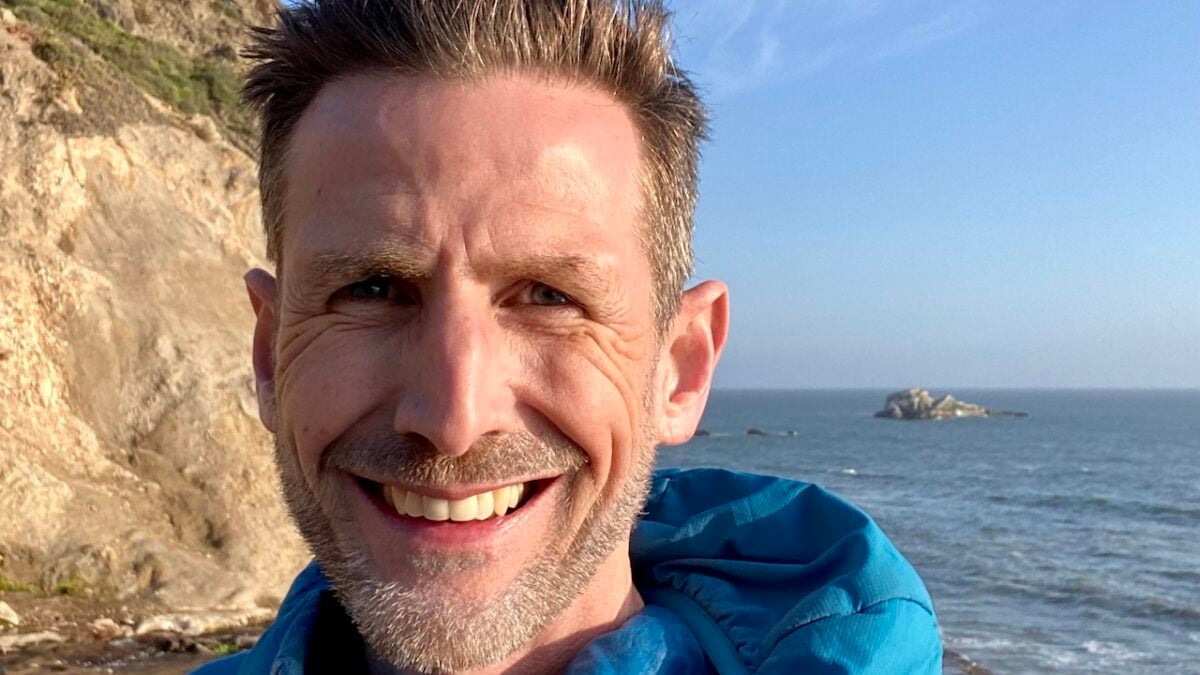The AI Ghost in the Machine Fired Him. Then It Gave Him a New Life

Mark Quinn’s story usually begins with an ending: a seasoned tech executive at companies like Apple and Amazon who was, in the ultimate tech irony, laid off because of AI. But the headline misses the real story. The layoff wasn’t the end. It was the moment the world changed for him, and the beginning of a journey that saw him turn the very technology that made his job obsolete into his most intimate collaborator, career counselor, and even parenting coach.
This isn’t just a story about technological disruption; it’s a deeply human account of adaptation in the face of obsolescence. It’s a roadmap for what comes after the initial shock, when the fear subsides and a single, terrifying question remains: Now what?
For Quinn, the answer began with a revelation. Before his departure in May 2023, he had an experience that shook him to his core. An operational challenge that had taken him and his team four months of intense work to solve was presented to GPT-4 as an experiment.
“In 30 seconds, it spit out not only the answer but the complete methodology, what we thought were the clever adaptations we figured out,” Quinn recalls. “When I saw that, I realized the world has changed. It was that moment that I said we got to be all in.”
He was all in, but soon he was all out. The very efficiency he helped implement by ramping down a 3,000-person human workforce with AI ultimately eliminated his own role. He was a ghost in the machine he had helped build.
But instead of succumbing to the fear that grips so many, Quinn made a conscious choice. He decided to learn the language of the ghost.
“For me, it was a moment of a wake-up call to realize what is really happening,” he says. “The world had been flipped upside down. The world is no longer round. Now it’s a triangle, and I have to navigate in this new world order.”
His first step was to reject the common perception of AI. He implores people to do the same. “Do not think of AI as a tool. Do not think of it as a search engine,” he insists. “These companies have done themselves a huge disservice by making them look like chatbots. They are not. The more that you can think of AI as a collaborator, as the world’s best expert in whatever you need sitting right there next to you, the more you get out of it.”
Putting this theory to the test, Quinn began what he calls the process of “AI-ifying myself.” He built a custom GPT, a personal AI agent, to guide him. He fed it his resume, his skills, and his fears, and asked it a simple question: What do I do?
The result was a detailed, 120-day AI application plan. It told him what to learn, who to talk to, and what tools to master to navigate his new “triangle world.” It was a curriculum for survival, prescribed by the very force that had threatened it.
This new collaboration yielded its most stunning result when Quinn was job hunting. He came across a posting for a role at Pearl.com but initially passed on it. “It didn’t read at all like the sort of jobs that I’ve done in my past,” he says.
A week later, he saw it again. This time, he ran it through his “career buddy” GPT. The machine’s response was a revelation. “It came back and said, ‘Mark, I understand that this doesn’t really look like a match on the surface, but you got to look deeper.’ And it explained to me the connections I wasn’t seeing.” The AI rewrote his resume and cover letter for the role. He got the job.
The contrast between his past and present is a vivid snapshot of the future of knowledge work.
“Previously, I led hundreds of thousands of humans in large, operational, complex groups,” Quinn explains. “And now I lead a team of zero. It’s me and my army of agents. I’m here at my desk with four different computer screens, probably six different agents running at any time. And that’s my team.”
His new job is to rewire the entire company to leverage AI, transforming the work and its people, a role his AI collaborator found for him, a role that didn’t exist in his old, round world.
But perhaps the most profound transformation has occurred not in his office, but in his home. The ghost has been domesticated. Quinn, a divorced father of two, has brought his AI collaborator into the most intimate corners of his life. He built a “Kid Coach” GPT, seeded with his own parenting philosophies, to help him navigate everything from setting allowances to helping his children through tough social situations.
The most powerful example came from his 13-year-old daughter, who has learning challenges. Her social studies textbook was a nightly source of conflict. The text-to-speech software was robotic and grating. So, Quinn started dropping the chapters into an AI tool and turning them into engaging podcasts.
“It went from me having to argue every night with my kid to get her to read at all, to her looking forward to it and having to time box it because she enjoyed it so much,” he says, the pride in his voice palpable.
Yet, this proximity to AI has also surfaced deeper anxieties. The story pivots on a question from his eldest daughter, one that echoes a global fear. “She has expressed that she is fearful,” Quinn shares. “She’s asked me about, ‘Is AI going to take all of our jobs?’ and ‘Is AI going to run the world?’ She did not mean it as a throwaway question. She meant it very sincerely. She’s frightened.”
It’s a moment that grounds the entire narrative. For all his optimism, Quinn understands the fear because he lives with it. His response to his daughter is the same as his message to the world: the concern is valid, but the only way forward is through engagement, not avoidance. We must build the guardrails to ensure AI does good.
This leads to the questions that even Mark Quinn, a scout sent ahead into this strange new territory, cannot answer. When conversations turn to the future, to a world where AI performs all entry-level work, he is asked where the next generation of leaders will come from. How do you gain experience when the entry points have been automated away?
His answer is refreshingly honest. “I don’t know,” he admits. “I think that in time, what we will see is my theory, but it’s loose, is that we will see something like expanded apprenticeship programs where companies are essentially hiring workers that aren’t really doing much work for years to develop them.”
It’s an amorphous conclusion for an amorphous time. Mark Quinn doesn’t have a crystal ball. What he has is a story, a testament that the same force that can feel like a destructive ghost can also become a creative partner. He was caught off guard once. Now, his life’s work is to ensure others don’t have to be. His message is clear: stop being scared. Get off the bleachers.
The game has already started.








